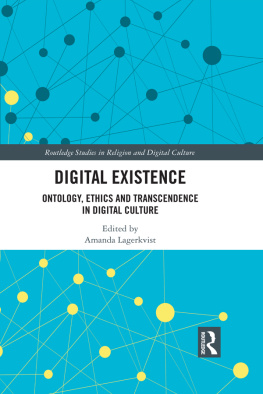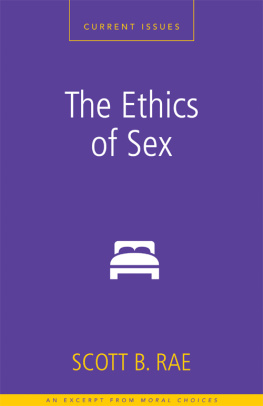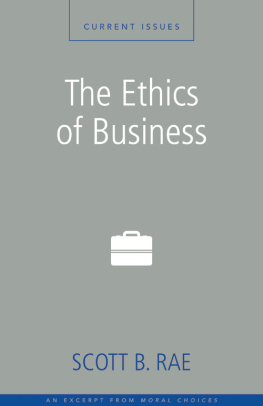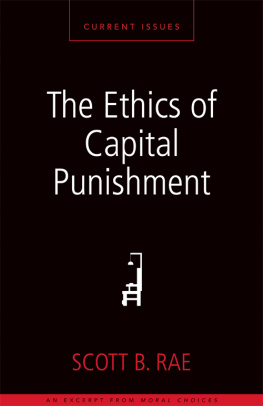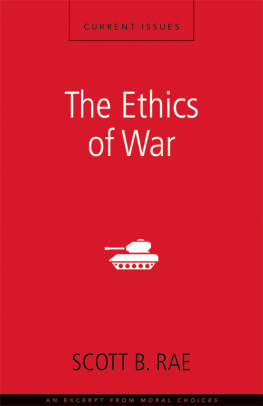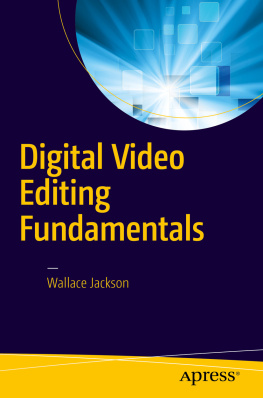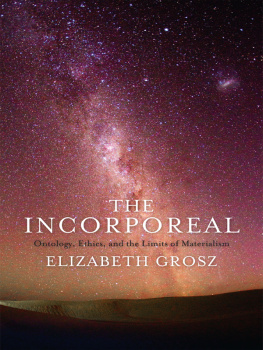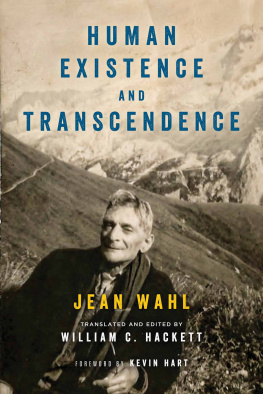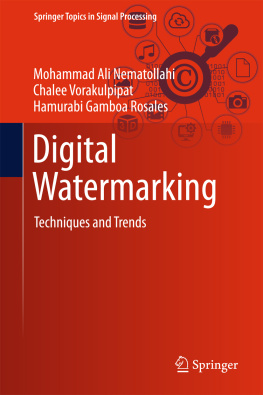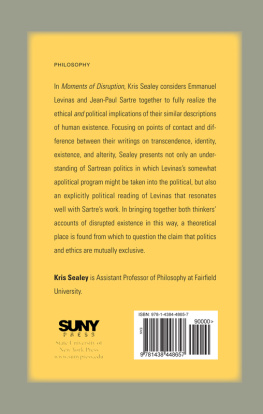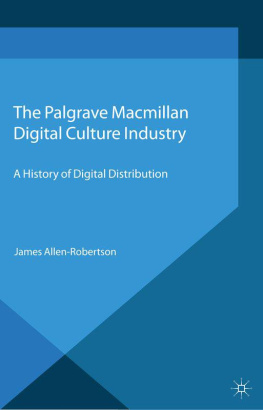Lagerkvist - Digital Existence: Ontology, Ethics, and Transcendence in Digital Culture
Here you can read online Lagerkvist - Digital Existence: Ontology, Ethics, and Transcendence in Digital Culture full text of the book (entire story) in english for free. Download pdf and epub, get meaning, cover and reviews about this ebook. year: 2018, publisher: Routledge, genre: Politics. Description of the work, (preface) as well as reviews are available. Best literature library LitArk.com created for fans of good reading and offers a wide selection of genres:
Romance novel
Science fiction
Adventure
Detective
Science
History
Home and family
Prose
Art
Politics
Computer
Non-fiction
Religion
Business
Children
Humor
Choose a favorite category and find really read worthwhile books. Enjoy immersion in the world of imagination, feel the emotions of the characters or learn something new for yourself, make an fascinating discovery.
- Book:Digital Existence: Ontology, Ethics, and Transcendence in Digital Culture
- Author:
- Publisher:Routledge
- Genre:
- Year:2018
- Rating:5 / 5
- Favourites:Add to favourites
- Your mark:
- 100
- 1
- 2
- 3
- 4
- 5
Digital Existence: Ontology, Ethics, and Transcendence in Digital Culture: summary, description and annotation
We offer to read an annotation, description, summary or preface (depends on what the author of the book "Digital Existence: Ontology, Ethics, and Transcendence in Digital Culture" wrote himself). If you haven't found the necessary information about the book — write in the comments, we will try to find it.
Lagerkvist: author's other books
Who wrote Digital Existence: Ontology, Ethics, and Transcendence in Digital Culture? Find out the surname, the name of the author of the book and a list of all author's works by series.
Digital Existence: Ontology, Ethics, and Transcendence in Digital Culture — read online for free the complete book (whole text) full work
Below is the text of the book, divided by pages. System saving the place of the last page read, allows you to conveniently read the book "Digital Existence: Ontology, Ethics, and Transcendence in Digital Culture" online for free, without having to search again every time where you left off. Put a bookmark, and you can go to the page where you finished reading at any time.
Font size:
Interval:
Bookmark:
Digital media span our entire existence. This book is the outcome of a recently initiated conversation about this condition. International in scope and global/universal in significance, its focal point has been the research program Existential Terrains: Memory and Meaning in Cultures of Connectivity , which I have headed during the past four years in the Department of Media Studies at Stockholm University. The program is funded by the Knut and Alice Wallenberg Foundation (KAW), the Marcus and Amalia Wallenberg Foundation, and Stockholm University. As part of the collaborative effort of KAW and the five Swedish Academies, I was appointed Wallenberg Academy Fellow 2013, with the mandate to develop an existential approach to digitalisation by placing a particular but not exclusive focus on death online, and to conduct basic research in this field.
The project hosts an international network called DIGMEX, which organises workshops, seminars, open lectures and international conferences every other year at the Sigtuna Foundation in Sweden. The first conference took place in October 2015, Digital Existence: Memory, Meaning, Vulnerability, and it successfully introduced the field of existential media studies. It was followed by Digital Existence II: Precarious Media Life in October 2017, which saw the convening of representatives from Singapore to the United States, from Australia to Canada, from the United Kingdom to Israel and from the Nordic countries as well as continental Europe. This volume represents some of the papers presented at these two events, yet expands beyond them to include other voices that are also an important part of this dialogue.
This book argues that an existential approach is needed to grasp the complexity of the technological developments of our time. Approaching the internet as existential terrain par excellence provides avenues for exploring the fundamental human condition of being faced with the contingency, absurdity and simultaneous quest for profundity and meaning in our lives. Eyebrows were raised, however, when I suggested eight years ago that we should study digital media existentially , and that, for instance, Kierkegaard could be helpful in this pursuit. Can a Christian thinker be good for anything , and especially for studying the frontiers of digital life in a culture that is, and should be, secular, some asked? But if in our time we are encountering and exploring the larger issues of life and death, meaning and meaninglessness, loneliness and sociality, the finite and the infinite on the internet, where else should we begin? If we wish to understand our mediated present age, to discuss the fates of human responsibility and ethics, and to explore the prospects for living a passionate and authentic life, who else should we consult? If digital media is about existence, about being , the first thing we need to do is to ask what we can learn about our age by drawing on existential philosophy, and its classic concepts and perspectives, to then develop these further for our contemporary technologised culture.
Equally untimely, for some in the new posthumanist vanguard, was the call for revisiting the humanoid existential question, and the question of human finitude. Was that not just an anthropocentric obsession and a thing of the past? Empirically though, death was all around. With Web 2.0, it seemed to have returned to everyday life: in the support groups for the bereaved online, on online memorials, in blogging about terminal illness, in suicide groups and prevention on the internet, and within the digital inheritance area. With a focus on these phenomena, Existential Terrains has set out to explore and conduct basic research on, as well as offer a theorisation of, how fundamental existential issues are pursued, when peoples lives and memories are increasingly shaped in, by and through digital media forms. But equally important in the project is to probe those existential issues and challenges we are facing due to digitalisation. Our aim in both cases has been to do this in awareness of differentiation across cultures and religious contexts, as well as how such issues are affected by the embodied situatedness and power asymmetries that pertain to gender, race, class, sexual orientation and disabilities, etc. The objective has thus been to pursue how these dimensions relate to both the affordances and stakes as well as to the predicaments of the digital human condition.
This volume has come into being in the hope of offering a different mapping: one that may enable a different type of journey. In order to boldly go where no one has gone before, one needs besides maps brave companions. I wish to extend my thanks to the team of researchers that have been engaged in various parts of the project and conference organisation during this enterprise: Michael Westerlund, Katerina Linden, Evelina Lundmark, Yvonne Andersson, Kristina Stenstrm, Anna Haverinen and Tim Hutchings. My sincere thanks go to the eminent scholars who have supported this project by serving on its advisory board: Anna Reading, Mia Lvheim, Tony Walter, Amit Pinchevski and Charles M. Ess. Charles is also our scientific advisor on digital ethics and was our visiting professor in the program in 2017. I have also been greatly privileged by the invaluable support of distinguished scholars Jos van Dijck and John Durham Peters. It would have been even more daunting to set out on this type of expedition without your esteemed and generous company.
Any existential pursuit is necessarily more than an intellectual exercise. It is lived and embodied, and entails all the struggles of life, including feeling the weight of the undertaking, and the loneliness that comes with major tasks being assigned. Stumbling and losing ones way in order to find new ways ahead is part of the human condition, and hence is crucial also for scholarship. But when lost at sea, I looked at the stars for guidance! Johanna Sumiala, Margaret Schwartz, Birgitta Svensson, Knut Lundby, Dorthe Refslund Christensen, Kristina Fjelkestam, Paul Frosh, Ylva Habel, Steffen Krger, Andrew Hoskins, Mona Abdel-Fadil, Kris-tina Riegert and Karin Becker: Thank you for your essential support during different parts of this new voyage.
Amanda Lagerkvist
First published 2019
by Routledge
2 Park Square, Milton Park, Abingdon, Oxon OX14 4RN
and by Routledge
711 Third Avenue, New York, NY 10017
Routledge is an imprint of the Taylor & Francis Group, an informa business
2019 selection and editorial matter, Amanda Lagerkvist; individual chapters, the contributors
The right of Amanda Lagerkvist to be identified as the author of the editorial material, and of the authors for their individual chapters, has been asserted in accordance with sections 77 and 78 of the Copyright, Designs and Patents Act 1988.
All rights reserved. No part of this book may be reprinted or reproduced or utilized in any form or by any electronic, mechanical, or other means, now known or hereafter invented, including photocopying and recording, or in any information storage or retrieval system, without permission in writing from the publishers.
Trademark notice: Product or corporate names may be trademarks or registered trademarks, and are used only for identification and explanation without intent to infringe.
British Library Cataloguing-in-Publication Data
A catalogue record for this book is available from the British Library
Library of Congress Cataloging-in-Publication Data
Names: Lagerkvist, Amanda, 1970 editor.
Title: Digital existence : ontology, ethics, and transcendence in digital
culture / edited by Amanda Lagerkvist.
Description: New York : Routledge, 2018. | Series: Routledge studies
in religion and digital culture | Includes bibliographical references
Font size:
Interval:
Bookmark:
Similar books «Digital Existence: Ontology, Ethics, and Transcendence in Digital Culture»
Look at similar books to Digital Existence: Ontology, Ethics, and Transcendence in Digital Culture. We have selected literature similar in name and meaning in the hope of providing readers with more options to find new, interesting, not yet read works.
Discussion, reviews of the book Digital Existence: Ontology, Ethics, and Transcendence in Digital Culture and just readers' own opinions. Leave your comments, write what you think about the work, its meaning or the main characters. Specify what exactly you liked and what you didn't like, and why you think so.

